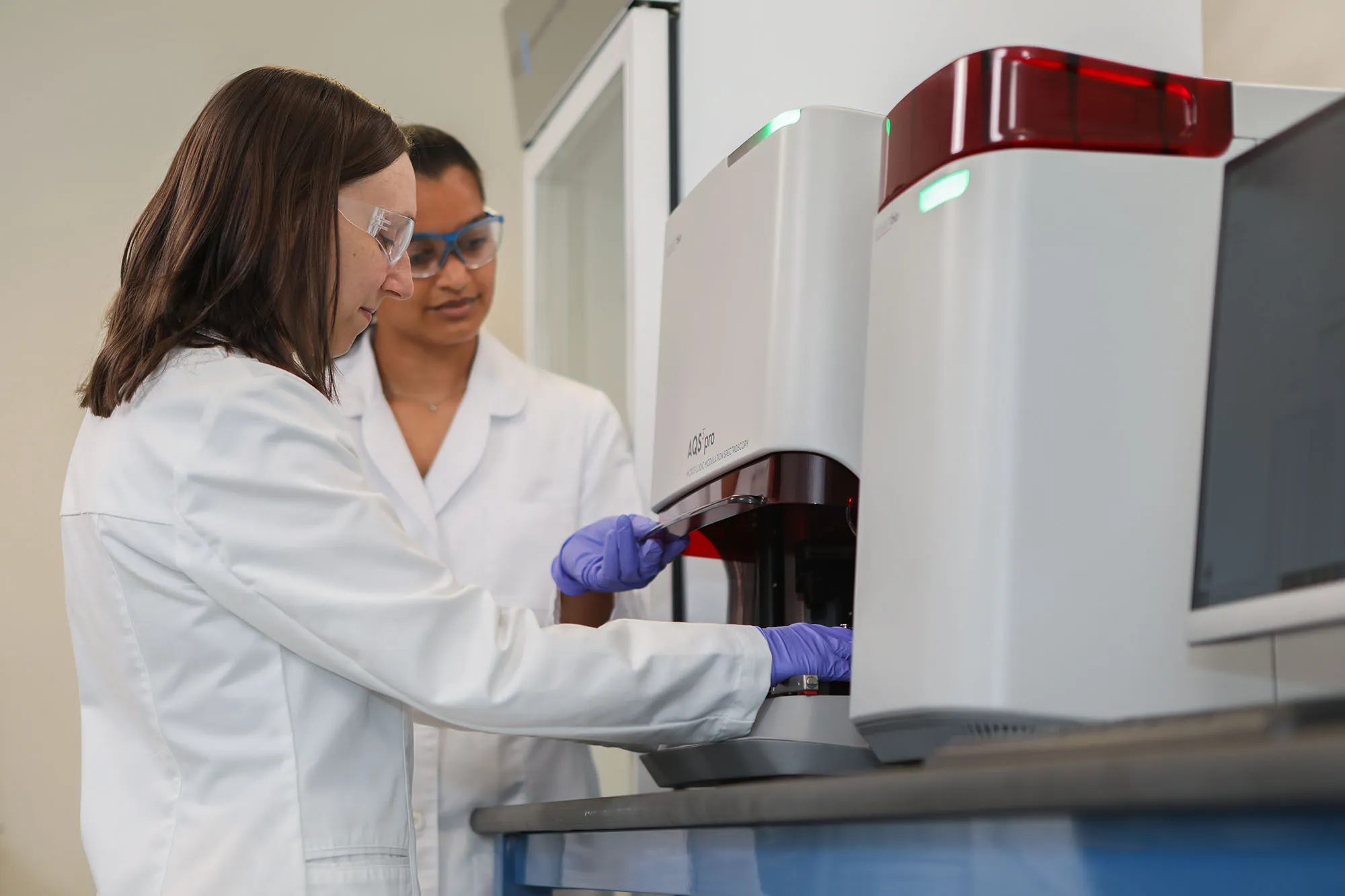
Application of Microfluidic Modulation Spectroscopy (MMS) for Characterizing the Secondary Structure of Mixed Food Protein Complexes

With the increasing interest in the utilization of plant proteins for sustainable food production, structural modification of food proteins has gained significant attention for improving protein functionality.
Ph.D. candidate Woojeong Kim of the University of New South Wales will present her data, recently published in Food Bioscience, highlighting MMS as a robust characterization method that overcomes the limitations of FTIR and CD for in-depth protein secondary structural analysis to better monitor and react to change as a result of these necessary modifications. As MMS has, until this point, been widely applied to biomolecule characterization in the biopharmaceutical space, this case study represents the exciting first application of MMS in the food science realm. Ms. Kim’s presentation will cover the structural changes of pea protein, whey protein, and pea/whey protein complexes via enzymatic cross-linking using MMS. The relative second secondary structure contents obtained from MMS data compared to the data acquired from circular dichroism will also be discussed. Dr. Valerie Collins of RedShiftBio will join the conversation to elaborate on the unique features of MMS technology that made this research possible and provide some further examples of utility from biopharmaceutical case studies.
During this webinar, academic and industrial researchers within the food science and biopharmaceutical fields will learn about:
- The significance of changes in protein secondary structure due to downstream processing, such as enzymatic cross-linking
- Why traditional spectroscopic techniques cannot accurately detect these subtle changes
- The advantages of performing structural analysis on high-concentration samples
- The fundamentals of Microfluidic Modulation Spectroscopy and its applications in biopharmaceutical development
Register today to discover how MMS provides reliable and reproducible HOS data that is not attainable by other spectroscopic methods while saving time and expense in food or drug development research.
Speakers:

Ms. Woojeong Kim is a PhD candidate in the Food Science and Technology program at the UNSW Sydney under the supervision of Prof. Cordelia Selomulya. Her research primarily focuses on processing strategies, exploring new food materials, and particle technology in the food and beverage sector. Her PhD project is on encapsulating bioactive compounds using proteins, polysaccharides, and their combinations in food. Particularly, she investigates improving plant protein functionality using dairy/plant protein blends, focusing on protein interaction, structural modification, and food application.

Dr. Valerie Collins joined RedShiftBio over four years ago and her experience with Microfluidic Modulation Spectroscopy began prior to that, as the first external beta tester of the original AQS3pro system. Valerie's research background primarily involves structural and spectroscopic characterization of proteins and peptides, focusing on amyloidosis. Dr. Collins has acquired a wealth of biophysical characterization experience throughout her academic and professional endeavors and she now leads the internal and external field applications team at RedShiftBio and oversees all proof-of-concept studies worldwide.

Webinar Form
Please complete the form to watch the video.

